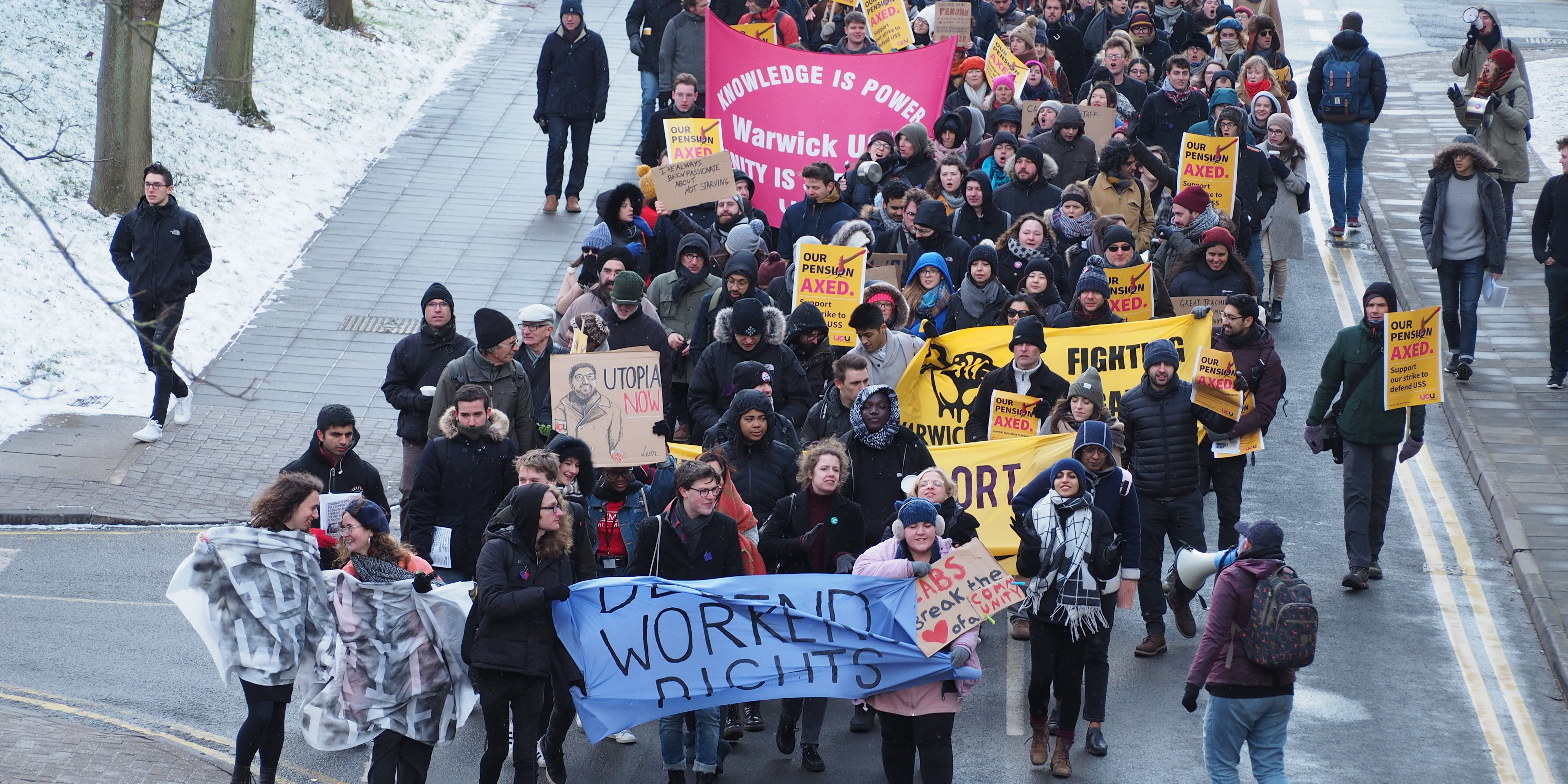UCU strikes could develop into marking boycott
In addition to the confirmed 14 days of strike some time between April and June, there have been discussions within the Universities and College Union (UCU) suggesting that the union could pledge for a ballot allowing a marking boycott next term, should an adequate resolution to the pension discussions not be found.
This would involve staff refusing to carry out their marking duties as part of the strike, and thus could affect student examinations and results.
As far as statements from the UCU supporting this consideration, The Boar has been told: “In the event that there isn’t any resolution after the current period of industrial action, nationally our negotiators are exploring how to take the dispute forward. There will be a range of options that they will consider and will discuss with branches.”
The UCU held a Higher Education Conference this Thursday to continue discussions, upon which they confirmed that a secondary wave of 14 strikes is set to commence after the Easter holiday.
The additional 14 days of strikes are part of the original mandate, allowing the UCU to take industrial action up until 19 June.
The pension dispute concerns UUK’s proposed changes to the union’s Defined Benefit pension scheme. Talks are currently taking place between the UCU and Universities UK (UUK) through Acas, the government’s Advisory, Conciliation and Arbitration Service.
As previously suggested by Duncan Adam, vice-president of Warwick UCU’s branch, the UCU believes that the pension deficit is not as big as UUK suggests due to a “recklessly prudent” approach to caution analysis, while Sally Hunt has also suggested that universities should not be struggling to continue the pension scheme as there have been fewer increases in staff salary this year.
As I say, the negotiators are considering all options for how to move this forward in the event of non-resolution in Acas
– Duncan Adam, vice-president of Warwick UCU
As well as considerations into further action, the UCU have also been reflecting upon current systems in place, such as Action Short of Strike (ASOS). ASOS involves staff working to rule, effectively completing no more than their contracted hours; it has been announced by the university that they will deduct 25% of a staff member’s pay for this action.
Mr Adam told The Boar: “ASOS remains in place for the current time. I think it would be fair to say that there is a great deal of uncertainty about how ASOS will actually operate in practice, and what it means for our members, this institution and elsewhere. As far as the national direction we’ve had, ASOS remains in place.”
“As I say, the negotiators are considering all options for how to move this forward in the event of non-resolution in Acas, the current talks. And the status of ASOS is of course one of the issues that negotiators are currently looking at.”
There has also been some tension within the University concerning the use of lecture capture during the strikes. As it stands, the University is not allowed to publish material for a striking member of staff’s module without that member of staff’s permission.
However, publication of material has been occurring without staff members’ consent. IT services have confirmed that, should this happen, members of staff can request the material to be taken down from the website.
There have also been reported tensions amongst staff working on visas, as although the “UCU is not aware of any individual case where participating in lawful industrial action has had an impact upon a member’s visa status”, for staff employed under a Tier 2 visa, “your sponsor is required to report unauthorised absence (such as strike action) if it continues for more than 10 consecutive days”.
One member of staff described the strike as needing to reach a level of “nuclear action” and “throw sand in the wheels” against, in the words of UCU general secretary Sally Hunt, “the failure of talks to deliver an acceptable settlement”.

Comments (1)